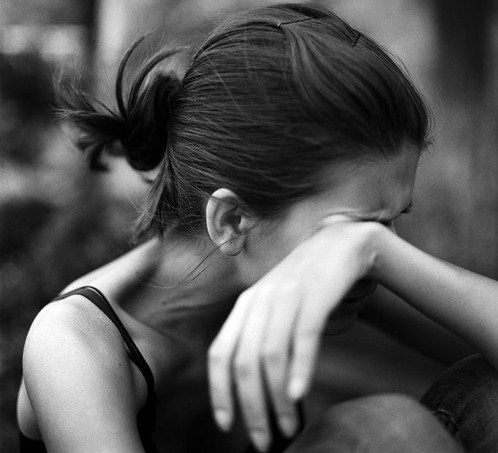Lifestyle
Why does emotional pain hurt?
Published
4 years agoon
By
Joe Pee
When rock band R.E.M. belted out “Everybody hurts sometimes,” they weren’t singing about backaches or sprained ankles. They were, of course, referring to the intense pain our emotions can cause — like the pang of losing a cherished friend or the heaviness in your chest after a breakup. So why do we experience rejection and loss as literal heartache?
The short answer: It helps us survive.
Pain is a danger signal, said Geoff MacDonald, a professor of psychology at the University of Toronto. When you place your hand on a hot stove, for example, a network of neurons in your brain activates to send a message: Something is very wrong. “If you stub your toe, for a brief moment, your entire world is that toe,” MacDonald told Live Science. “Pain is really good at disrupting attention and getting you singularly focused on making the bad thing stop.”
From an evolutionary perspective, rejection is a really bad thing. For human ancestors, survival required a close social network, MacDonald said. “By cooperating, you can collect food better; you can protect against predators better,” he said. “And obviously, if you’re not connected to other people, you’re going to have a hard time finding somebody to reproduce with.”
Human ancestors who went out of their way to avoid rejection would have had better odds of survival — and what better deterrent is there than physical pain?
Studies suggest that when we experience rejection, our brains behave similarly to the way they do when we’re in physical pain. In 2011, psychologists used a functional magnetic resonance imaging (fMRI) machine to scan the brains of 40 heartbroken participants, all of whom had recently gone through an unwanted breakup. Inside the scanner, the participants gazed at photos of the partner who had dumped them, while thinking about the rejection. Then, the individuals focused on photos of close friends while imagining a happy memory of that friendship.
Finally, the psychologists scanned the participants’ brains as they experienced painful and pleasant physical sensations: a hot (but not burning) object, followed by a pleasantly warm object, placed on their arms. The results, published in the journal Proceedings of the National Academy of Sciences (PNAS), found that both the sight of an ex-partner and the sensation of the hot object activated areas of the brain associated with pain, but the photo of a friend and the pleasant warmth did not. A review of 524 other neuroscience studies on experiences ranging from pain to memory supported the psychologists’ results. The same areas of the brain were associated with pain in up to 88% of the studies they reviewed, the team reported in the study.
Many psychologists think the experience of emotional pain “piggybacked” onto the already existing physical pain system in the brains of our early ancestors, said Ethan Kross, a professor of psychology at the University of Michigan and first author of the 2011 PNAS study.
The pain you feel after a fight with a close friend is quite real, Kross told Live Science, but it’s not exactly the same as physical pain. “Anyone who has ever been rejected on one occasion and punched in the nose on another can tell you that these experiences are, of course, different,” he said. We see that reflected in fMRI studies. The parts of the brain activated by these two different experiences have some overlap, but they’re not identical.
But why do we experience the pain of rejection in our chest and abdomen as opposed to, say, our knee? Some psychologists have hypothesized that this experience has to do with activation of the vagus nerve, which runs from the brain to the neck, chest and abdomen. But there’s not much compelling evidence for this explanation, Kross said.
Moreover, there’s also “broken-heart” syndrome, a condition in which the heart temporarily weakens, causing its main pumping chamber, the left ventricle, to balloon out and pump improperly. The condition, also known as takotsubo syndrome (TTS), is linked to heightened activity in the brain caused by stressful events, such as the death of a loved one. But more often than not, heartbreak doesn’t lead to broken-heart syndrome — the condition is rare
You may like
-


Mahama Vows to Usher in Era of Fiscal Discipline and National Renewal
-


Elon Musk changes his name to Kekius Maximus on X
-


Mahama Calls for Unity Among Political Parties to Drive Ghana’s Renaissance
-


President-elect Mahama Rallies NDC Supporters: “Pray Harder for Ghana’s Transformation”
-


Ghana’s Economy on the Rise: President Akufo-Addo Highlights Robust Growth in 2024
-


EC Declares Final Verdict in Dome Kwabenya: Faustina Akurugu Elikplim Clinches Victory Amid Controversy
-


Thousands displaced as post-election unrest grips Mozambique
-


Former Black Stars Player Samuel Inkoom Faces Court Over Alleged Visa Fraud
-


Stonebwoy and Samini Mend Ties with Emotional Reunion at 3FM All White Party
















